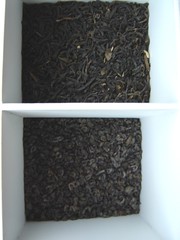
China tea
I spent the afternoon observing 7-9 year olds chatting on simple discussion boards designed for us by Vertebrate Graphics. Since most of the children were completely new to this, it was fascinating to watch as they exchanged information about Bratz dolls, X-box games and favourite footballers. This was followed by an interesting discussion with the headteacher on how the school might want to moderate or regulate the children’s communication.
Then, back at home, after tea, I noticed that Sheffield has become a target for the derogatory and definitely class-based screen garbage pumped out by contributors to Chavtowns. These bird-brains seem to have too much time on their hands. But then again, I suppose that this is what you get with an unregulated medium.
I’ve also been looking at the developmental work being done on ‘Magic Books’ by these people. Here’s a quick description:
“This work explores the transition between Physical Reality, Augmented Reality (AR), and immersive Virtual Reality (VR) in a collaborative setting. A MagicBook looks like a normal storybook with colorful pages and simple text. When readers look at the same pages holding a lightweight head mounted display (HMD), the pictures pop off the page and come to life as three-dimensional animated virtual scenes. By touching a switch on the HMD, readers can fly into the virtual scene and freely explore the immersive environment.”
Sounds really exciting - quite thought provoking too. But is it trying to get new technology to reproduce book reading?
And finally, musician John Fahey was little known in his lifetime. His work now seems to be attracting more attention. A tribute album has now been released, and there’s free downloads here. If you only want to try one thing, listen to Howard Gelb’s wonderful rendition of Fahey’s ‘My Grandfather’s Clock’.
2 comments:
That chav stuff seems to be pure hatred of the aspiratonal working class; I have been wondering lately though, if this kind of commentary, such as peddled out by many a newspaper too, is also another kind of popular culture discourse. But one which we are not willing to embrace in OUR academic descriptions of popular culture? Whaddya think? Save me from these thoughts.
Post a Comment